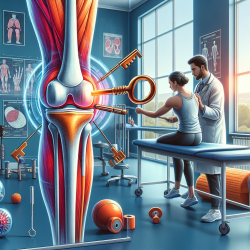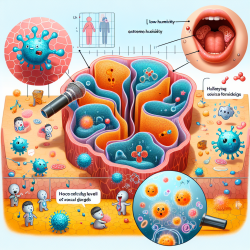Introduction
As practitioners dedicated to improving outcomes for patients undergoing total knee arthroplasty (TKA), we constantly seek methods to enhance recovery and reduce postoperative pain. The research article titled "A phase III randomized three-arm trial of physical therapist delivered pain coping skills training for patients with total knee arthroplasty: the KASTPain protocol" offers valuable insights into how we can achieve these goals. This blog post will explore the study's findings and discuss how practitioners can implement these strategies to improve patient outcomes.
The KASTPain Protocol: A Game Changer
The KASTPain trial aimed to determine if a pain coping skills training program, delivered by physical therapists, could effectively reduce function-limiting pain following TKA in patients with high levels of pain catastrophizing. The study involved 402 patients who were randomly assigned to one of three groups: pain coping skills training, arthritis education control, or usual care. The primary outcome measured was the change in the Western Ontario and McMaster Universities Osteoarthritis Index (WOMAC) Pain scale score 12 months post-surgery.
Key Findings
- Pain coping skills training was more effective than arthritis education and usual care in decreasing knee pain during functional activities.
- The training also improved self-reported function, physical performance, and reduced pain intensity and pain catastrophizing.
- The intervention showed potential cost savings or cost-effectiveness relative to arthritis education and usual care.
Implications for Practitioners
For practitioners, these findings suggest that integrating pain coping skills training into the preoperative and postoperative care of TKA patients could significantly enhance patient outcomes. Here are some steps practitioners can take:
- Training Physical Therapists: Ensure that physical therapists are trained in delivering pain coping skills, focusing on cognitive restructuring, relaxation techniques, and activity-rest cycling.
- Patient Education: Educate patients about the benefits of pain coping skills and how they can actively participate in their recovery process.
- Monitoring and Support: Continuously monitor patient progress and provide support to reinforce the use of coping skills.
Encouraging Further Research
While the KASTPain trial provides a strong foundation, further research is needed to explore the long-term benefits of pain coping skills training and its applicability to other surgical procedures. Practitioners are encouraged to contribute to this growing body of research by conducting studies in their clinical settings.
Conclusion
The KASTPain protocol demonstrates that pain coping skills training can be a powerful tool in improving outcomes for TKA patients. By implementing these strategies, practitioners can help patients achieve better pain management and functional recovery, ultimately enhancing their quality of life.
To read the original research paper, please follow this link: A phase III randomized three-arm trial of physical therapist delivered pain coping skills training for patients with total knee arthroplasty: the KASTPain protocol.










